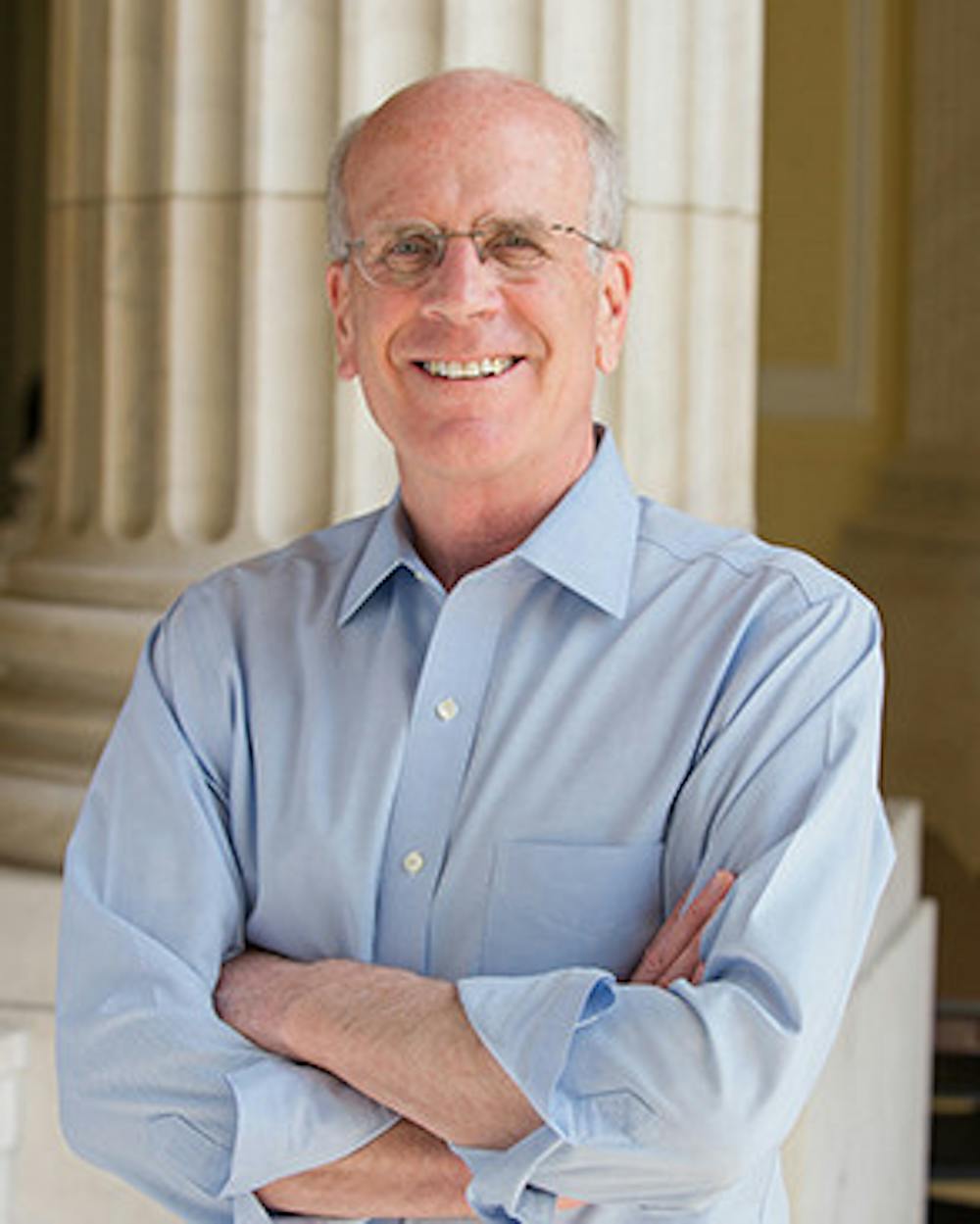On Tuesday, Sept. 5, the Justice Department announced that DACA, an Obama-era executive order also known as Deferred Action for Childhood Arrivals, would be terminated unless Congress could pass a bill in the next six months. As it stands, the program allows undocumented immigrants who were brought to the United States as children by their parents to remain in the country. Currently, the program protects roughly 800,000 immigrants.
As Attorney General Jeff Sessions articulated in his announcement of this decision, the Trump administration would stop adding new applicants to the program, but would continue to recognize existing DACA authorizations until their two-year lifespans expire.
Elected officials and advocates across the country have come out strongly against the Trump administration’s decision to end DACA.
Vermonters Insert Their Voice
In Vermont, it is clear that those in power stand with the Dreamers.
According to Congressman Peter Welch (D), the impact of Trump’s DACA Decision would leave upwards of 42 Vermonters at risk. President Laurie L. Patton and Chief Diversity Officer and DACA point person, Miguel Fernández, released a joint statement that was sent to the entire Middlebury community extending their support to DACA recipients.
President Patton and Professor Fernández stated, “We are writing to state clearly that no matter what the Administration decides to do, we will stand by our students, protect their rights, and continue to provide them an outstanding education. We are proud of the accomplishments of our DACA students and will continue to support them in every way we can.”
The pair continued by saying, “Middlebury is and will remain unwaveringly committed to providing educational opportunities to students without regard to nationality, place of birth, immigration status, gender, race, ethnicity, sexual orientation or economic status. We evaluate applications from undocumented prospective students under our need-blind admissions policy with a commitment to meet 100 percent of demonstrated financial need regardless of country of citizenship or immigration status.”
Senator Patrick Leahy (D) expressed his disgust with President Trump’s decision in a press release.
“After promising to show DACA recipients ‘great heart,’” Senator Leahy began, “the President has revealed he is as heartless as he is uninformed. We live in an unprecedented time when our President seeks to divide us, not to unite us. He rallies his dwindling supporters by exploiting fear and resentment, marginalizing those who are vulnerable and even those who risk their lives for our country and their communities. It is shameful and far beneath the office he holds.”
Senator Bernie Sanders (D) echoed the sentiments of his colleague by releasing a statement that said, “Trump’s decision on DACA is the ugliest and most cruel decision ever made by a president of the U.S. in the modern history of this country.”
Even Governor Phil Scott, a republican, released a statement that denounced Trump’s decision.
“It is my hope Congress will take action and continue this policy, which I believe provides long-term benefits to American culture, the economy and the prosperity of our country,” the governor said.
UVM Humanizes the Stakes
In response to the growing frustration and shock brewing amongst lawmakers, advocates and educators alike, University of Vermont president Tom Sullivan hosted a press conference on Monday at the Larner College of Medicine featuring House Representative Peter Welch (D) and Juan Conde, a first year medical student who is a DACA recipient, to emphasize why action must be taken.
President Sullivan began the press conference by reaffirming the university’s commitment to protecting its undocumented students.
“I want to reiterate here today at this gathering on our university campus that we take our students’ rights seriously,” President Sullivan said. He went on to say, “as members of our university community, we will work proactively together and in solidarity to ensure the safety, well-being , and educational success of all of our students.”
Congressman Welch went on to pledge his support to the DACA program.
“DACA is what is the best in America,” the congressman explained, going on to promise, “I am here to say to Juan, to say to the university community, that I am going to do every single thing that I can so that at the end of this six month period Juan and his fellow 800,000 DACA dreamers have continued legal status.”
Welch Clarifies his Position
Unlike his colleagues, Congressman Welch was not as quick to denounce President Trump; Congressman Welch believes that DACA should exist not as an executive order, but as an indisputable law, and that the six month time period that President Trump has given Congress serves as an opportunity take action.
“I agree that President Trump telling Congress to do our job is correct. We should do our job. We should pass by law legal protections for individuals like Juan who were brought here when they were young by their parents. So I think that’s a fair challenge by the President of the United States.”
As Congressman Welch explained, the challenge in getting a DACA bill passed is not convincing members of congress on both sides of the aisle to believe in the dreamers, but to make sure that politicians don’t use this vote as an opportunity to maneuver other contentious immigration issues, such as questions of border security and building a wall, into the conversation.
“What I am going to object to,” Congressman Welch explained,” is my republican colleagues using the Dreamers as a hostage so they can talk about the wall.”
He concluded by urging his fellow members of Congress to do the right thing by saying, “Let’s have a clean vote.”
Juan Conde’s Perspective
Standing in front of his peers and the press, Juan told his story. He shared how he came to Eagle Pass, Texas from Mexico when he was nine years old with his mother and brother. He explained how his mother instilled the American dream in him.
“My mother taught me that with hard work, dedication and grit you could accomplish anything that you dreamt,” Mr. Conde said.
Mr. Conde explained that his mother’s death from cancer in 2007 solidified his desire to become a doctor. At the time however, Juan was in college and could not apply to medical school because of his status as an undocumented resident. Instead, he pursued a masters degree in chemistry and a Ph.D. in biochemistry.
Then, in 2012, when the DACA program became a reality, Juan was able to apply to medical school, resulting in his matriculation at the Robert Larner College of Medicine at the University of Vermont.
Explaining his own perspective of the DACA program, Mr. Conde stated, “what DACA meant for me was my country believed in my dreams.”
When the Justice Department announced the decision to rescind the program, Mr. Conde had to make a choice of whether he wanted to stay in the shadows or come forward. He chose the latter.
“I am tired of being afraid,” Mr. Conde said. “This is my home. The American people are my people.”
Mr. Conde also did not shy away from giving advice to other dreamers who have not publicly taken a stand.
“I would tell them to hang on, to continue doing everything that they’ve done so far, and to believe that America will take care of them, will not forget their contributions, and just to have a trust that the American people will do the right thing.”
President Sullivan, Congressman Welch and even his classmates commended Mr. Conde for his bravery and his accomplishments.
Mr. Sullivan emphasized Mr. Conde’s exceptionality.
“He is a great example of the kind of young person we want to keep in the United States — one with character, demonstrated talent, high competence, persistence through success, and real accomplishments.”
Congressman Welch further applauded Mr. Conde by saying, “Juan, your comments about your life and what motivated you and your embrace of the American dream is inspiring to all of us.”
Reed Hausser, a classmate and friend of Juan’s stood up and stated, “I just wanted to let Juan and other students like him know that we as a community are behind you and continue to support you and fight for you as much as we can.”
Juan Conde’s story could only be possible in the United States. But it is up to Congress and the American people to see how a story like Juan’s ends.




